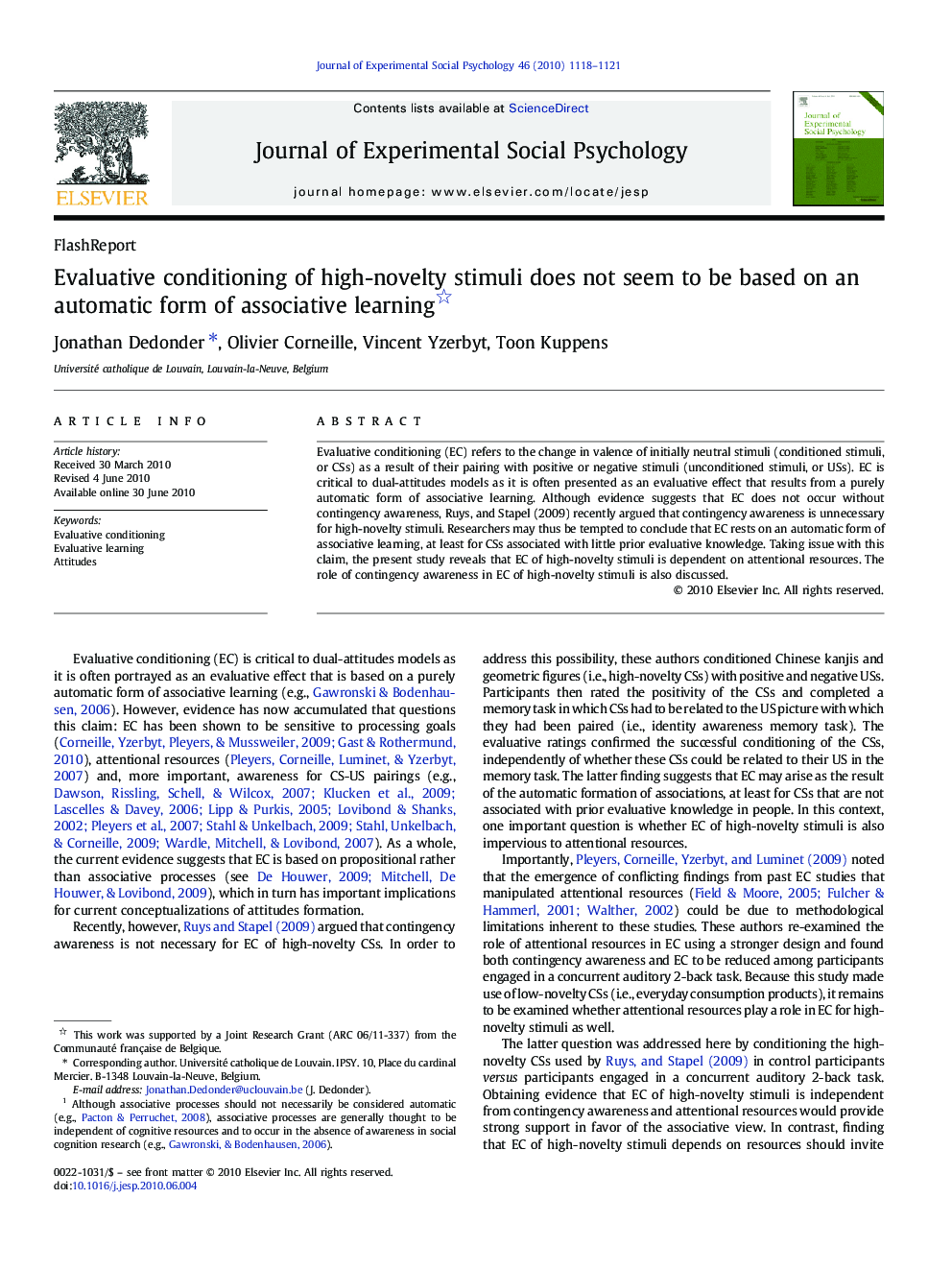| کد مقاله | کد نشریه | سال انتشار | مقاله انگلیسی | نسخه تمام متن |
|---|---|---|---|---|
| 948633 | 926475 | 2010 | 4 صفحه PDF | دانلود رایگان |

Evaluative conditioning (EC) refers to the change in valence of initially neutral stimuli (conditioned stimuli, or CSs) as a result of their pairing with positive or negative stimuli (unconditioned stimuli, or USs). EC is critical to dual-attitudes models as it is often presented as an evaluative effect that results from a purely automatic form of associative learning. Although evidence suggests that EC does not occur without contingency awareness, Ruys, and Stapel (2009) recently argued that contingency awareness is unnecessary for high-novelty stimuli. Researchers may thus be tempted to conclude that EC rests on an automatic form of associative learning, at least for CSs associated with little prior evaluative knowledge. Taking issue with this claim, the present study reveals that EC of high-novelty stimuli is dependent on attentional resources. The role of contingency awareness in EC of high-novelty stimuli is also discussed.
Journal: Journal of Experimental Social Psychology - Volume 46, Issue 6, November 2010, Pages 1118–1121